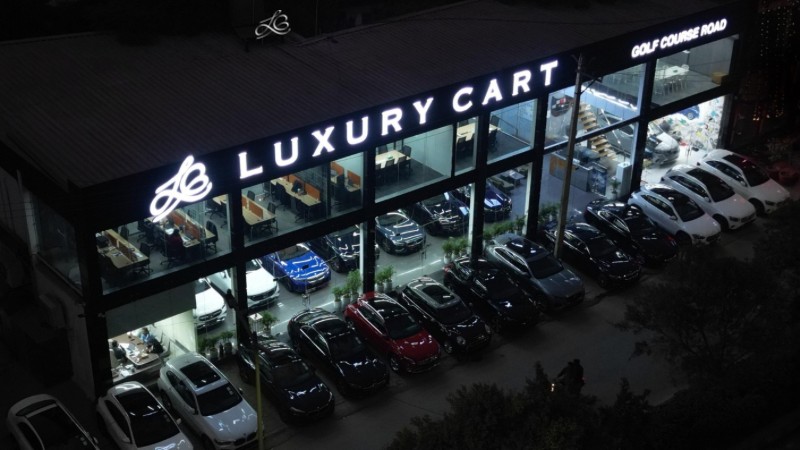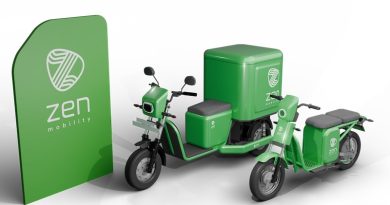Luxury car market is adopting EVs | Factors behind the trend
Of the 25,075 luxury cars sold from January to August 2025, 3,049 were EVs, making up 10.8% of all luxury cars sold in India. In comparison, 2,869 luxury EVs were sold in all of CY 2024, accounting for 7.2% of the luxury car market. Source: EVreporter Intelligence based on Combined Vahan numbers for Mercedes-Benz, Audi, BMW, Jaguar, Porsche, Volvo, Rolls-Royce.
Himanshu Arya, Founder and CEO of Luxury Cart (a platform for pre-owned luxury cars), writes about the natural alignment of EVs with the lifestyle and aspirations of luxury vehicle buyers.
Over the past decade, electric cars have evolved from a niche concept to a significant presence in the automotive world. There’s a noticeable shift happening, especially within the luxury car world, that’s really driving the move toward electric vehicles. Major global players, including Mercedes-Benz, BMW, Audi, and Porsche, are all making huge investments in electric technology, building on the groundwork laid by early innovator Tesla. This same pattern is now taking hold in India, where affluent consumers are increasingly opting for luxury electric cars as a means to showcase their commitment to both the environment and a high-end lifestyle.
Aspirations Driving the Shift
Luxury car ownership has always been more than just owning a vehicle. Luxury electric cars run on batteries and keep the features of high-end vehicles. This includes handling, interior comfort, and design. In the premium segment, some cars are sold with added services. These can include apps, concierge services, and other forms of customer support.
EVs tie in naturally with the kind of sustainable lifestyle people are building around themselves. Electric cars fit neatly into a lifestyle built around sustainability, from eco-friendly homes to more conscious everyday choices. This shift in values among the next generation is fuelling stronger demand for premium electric vehicles, often outpacing the mainstream market, where price considerations remain more decisive.
Brand Positioning and Innovation
Luxury manufacturers have recognised that electrification provides an opportunity to redefine their image. High-performance electric models with bold design and advanced technology are drawing in a new set of buyers, while still keeping long-time brand loyalists interested. Take Porsche’s Taycan, which showed the world that an EV can deliver genuine excitement without losing its heritage, or Mercedes-Benz, which presents the EQ line as the next chapter of luxury.
Electric platforms are making possible features that were difficult, if not impossible, with traditional engines. Ultra-quiet cabins, immediate acceleration and digital-first interiors are allowing carmakers to rethink what luxury can look and feel like. For many buyers, going electric has become a symbol of exclusivity in itself.
The Role of Government Incentives
Policy has been another driving force. Worldwide, tax breaks and lighter import duties have encouraged premium customers to consider EVs. In India, lower GST rates, exemptions on road tax in certain states, and support for charging infrastructure have given the move toward EVs an extra push.
Mass-market buyers often lean heavily on subsidies and discounts, but wealthy customers gain in other ways. Faster clearances and a visible policy push towards sustainable mobility reassure them that choosing an electric luxury car is a safe, future-ready decision. For many, it brings personal satisfaction and confidence in the long-term resale value.
Charging Infrastructure and Accessibility
Charging infrastructure has been just as important. For years, the fear of running out of charge held people back. Luxury carmakers have alleviated concerns by offering larger battery packs and longer ranges, while governments and private firms continue to expand the charging network.
In India, fast-charging stations are slowly but steadily appearing in major cities. In addition, premium brands are putting in place their own solutions. BMW, Audi and Mercedes-Benz, for instance, now provide home-charging kits with their cars. The result is an ecosystem of support that reassures buyers they will not be left stranded.
A Transformation Beyond Automobiles
In the luxury market, electrification extends beyond the vehicle itself. Ownership includes digital services, concierge support, and lifestyle partnerships. Electric cars are also part of a network of buyers focused on both sustainability and high-end living.
This lead from luxury brands is already influencing the broader market. Premium EVs are gathering pace, and the rest of the market cannot ignore them. Luxury has always been the testing ground for style and innovation. In the shift to electric, it is once again at the forefront.
Conclusion
What is happening at the top end demonstrates how various forces align to drive change, including aspiration, brand value, government policy, and improved infrastructure. For wealthy buyers, an electric car is never just about getting from A to B. It is a statement of responsibility, a sign of ambition, and a marker of status. For the industry, it feels less like a passing choice and more like the direction the next decade is already taking.
Luxury has long defined what is desirable. Now, it is showing that the journey to sustainability can also be the journey to uncompromised luxury.
About the author

Himanshu Arya is the Founder and CEO of Luxury Cart, a platform for pre-owned luxury cars. An MBA graduate from IMT Ghaziabad, he has over 16 years of experience in marketing and the automotive sectors. Before founding Luxury Cart, he established Grapes Worldwide, an integrated communications agency.
Also read: India electric car sales report – CY 2024 | Excerpts
Subscribe & Stay Informed
Subscribe today for free and stay on top of latest developments in EV domain.






